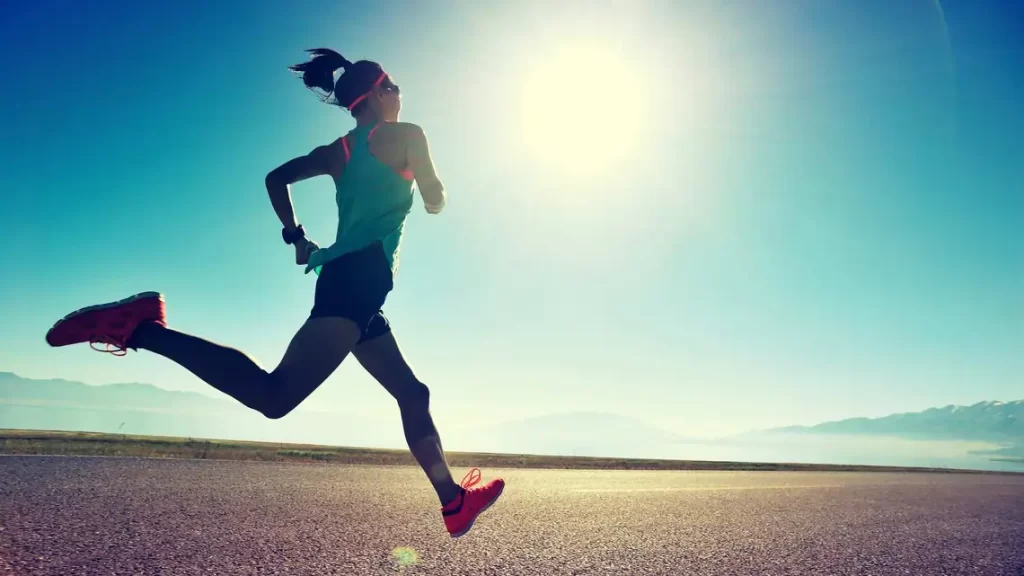The Intriguing Story of Running: From Primal Necessity to Global Phenomenon
Running, a seemingly simple movement, holds a profound place in human history. It’s more than just a physical activity; it’s a deeply ingrained part of our evolutionary journey and a multifaceted cultural phenomenon. This comprehensive guide explores the fascinating timeline of running, delving into its origins, evolution, and enduring significance.
Unveiling the First Steps: Running’s Evolutionary Roots
The exact date of “running’s invention” is lost to the mists of time. However, compelling evidence suggests our ancestors likely began running millions of years ago, driven by the fundamental need for survival:
-
The Persistence Hunting Hypothesis: This theory proposes that early humans, lacking the speed or strength to outrun prey in short bursts, may have relied on persistence hunting. This involved chasing prey over long distances at a sustainable pace, eventually leading to the animal’s exhaustion and capture. Our ancestors’ ability to sweat efficiently, a key physiological adaptation, might have been crucial for this strategy.
-
Endurance Running for Survival: Running wasn’t just for hunting. Early humans likely used running to escape predators, scavenge for food over vast territories, and migrate across changing landscapes. The development of bipedalism (walking upright on two legs) freed our upper limbs for carrying tools and resources, making running an even more advantageous mode of locomotion.
From Necessity to Competition: The Rise of Organized Running
As human societies evolved, running transcended its purely functional purpose and became intertwined with cultural practices:
-
Ritualistic Running: Archaeological evidence suggests that some ancient civilizations incorporated running into religious ceremonies and rituals. These early forms of running might have served as symbolic representations of endurance, courage, or the hunt.
-
The Dawn of Competitive Running: The earliest documented competitive running events can be traced back to ancient civilizations like Greece and Egypt. The ancient Olympic Games, established in 776 BC, featured a single running race, the stadion (approximately 192 meters). Over time, more running events were added to the Olympics, showcasing the growing significance of running as a sport.
A Global Pursuit: Running Throughout History
Running’s influence extended far beyond the ancient world, leaving its mark on various cultures and eras:
-
The Long-Distance Tradition: Messenger running played a vital role in communication and military strategy throughout history. The ability to deliver messages quickly over long distances was crucial for empires and armies. The legacy of messenger running lives on in modern long-distance running events like marathons.
-
The Rise of Recreational Running: The Industrial Revolution and the concept of leisure time led to a renewed interest in running for recreational purposes. In the 19th and 20th centuries, running clubs and organized races gained popularity, making running more accessible to the masses.
-
The Modern Running Boom: The latter half of the 20th century witnessed a significant surge in recreational running. Technological advancements in footwear and training methods, coupled with a growing emphasis on health and fitness, fueled this global phenomenon.
Beyond the Finish Line: The Multifaceted Impact of Running
Running’s influence extends far beyond the realm of competition and physical activity. Here’s a glimpse into its broader impact:
-
Physical and Mental Well-being: Running is a well-established path to improved cardiovascular health, weight management, and stress reduction. It can also boost mood, self-esteem, and cognitive function.
-
Building Community: Running groups, races, and virtual challenges foster a sense of community and belonging. Shared goals and achievements create lasting bonds among runners of all levels.
-
A Platform for Self-Discovery: Running can be a deeply personal journey. It allows individuals to push their limits, test their mental and physical boundaries, and experience a profound sense of accomplishment.
Frequently Asked Questions About When Running Was Invented
Q: So, can we pinpoint an exact date for the invention of running?
A: Due to the deeply rooted nature of running in human evolution, it’s challenging to pinpoint a specific date. Our ancestors likely began running millions of years ago out of necessity.
Q: What was the earliest documented form of competitive running?
A: The ancient Olympic Games, established in 776 BC, featured a running race called the stadion, marking one of the earliest documented instances of competitive running.
Q: How did running evolve from a survival skill to a global sport?
A: As human societies developed, running transitioned from a purely functional activity to a cultural practice and eventually a competitive sport. The rise of organized events and advancements in training methods further solidified running’s place in our world.
Q: Why is running still so popular today?
A: Running’s enduring popularity stems from its accessibility, health benefits, and ability to foster a sense of community.



